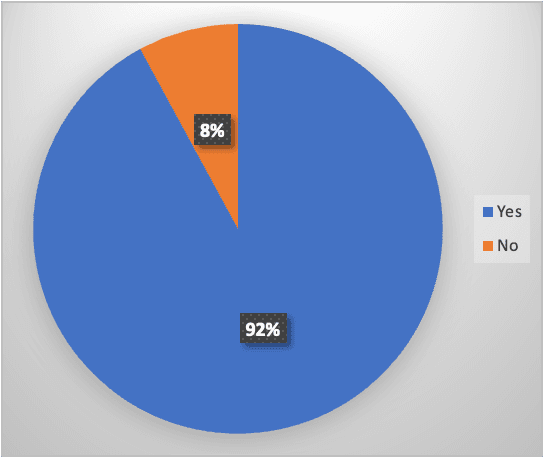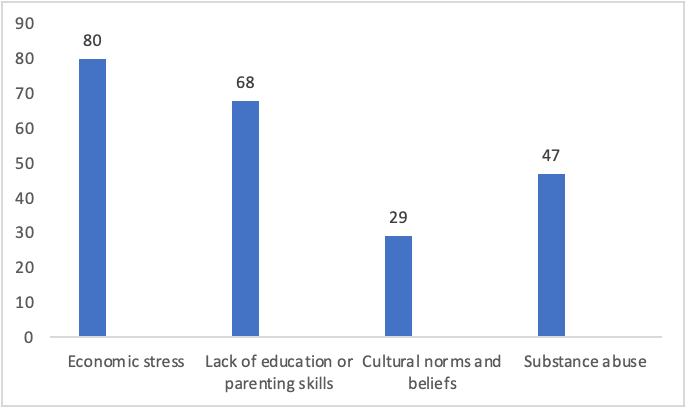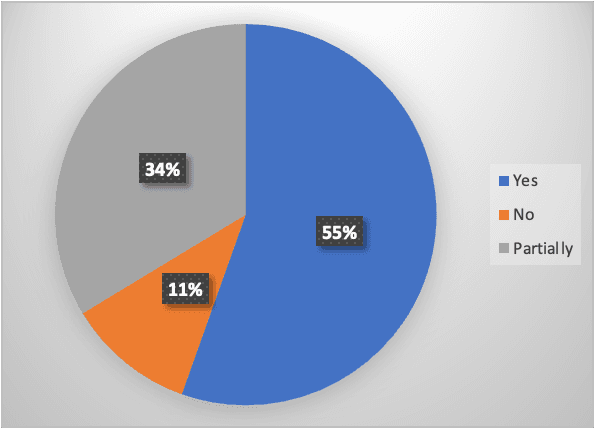Introduction
Family – is a group of people related to each other by blood, consanguinity, which is a form of having a kinship with another person, and affinity, which can be recognized by marriage or another form of a relationship. Its focus is to produce new members of society. Basically, family is an institution that makes new human generations and provide means to socialization. This institution has a major influence on personal and sociological evolution as it delivers human beings to society and, therefore, provides various forms of communication in social life.
As it was mentioned before, the primary role of the family as an institution is to produce new members to a society. Thus, Kazakhstani citizens face the formation of new family institutions and mostly people who are creating new families are youth aged from 18 to 22. Young members of a society create and welcome new members and sometimes they face difficulties with upbringing children. Nowadays, it is crucial to give a good nurturing and education because as a person becomes an adult, he or she will be a part of the society and, therefore, will represent it; subsequently, it is necessary for young parents to make sure that their child is well-behaved and will not pose a danger in any forms to a society in the future. However, sometimes it is hard to deal with unexpected child behavior. That is why young parents resort to extreme and cruel measures of upbringing, that can be either physical or emotional abuse. Thus, this project work will be identifying the most acute problems that occur among Kazakhstani families, which is related to abuse towards children.
Research problem to reveal the topic
As the chosen topic is about the most acute problems in Kazakhstani families, the chosen research problem is:
Why is child abuse common in Kazakhstani families?
Speaking of child abuse, many people simultaneously think about physical violence, abuse, cruel treatment and so on. It should be noted that this is the actual case in modern society, however, it's not about this only, but also about moral or mental pressure. Offensive words, humiliation of personality and swearing towards the child paradoxically became a normal practice of upbringing in Kazakhstani families. The most common cause of a domestic abuse is disobedience, which newly became parents emotionally cannot deal with. For example, when a school-age child asks his or her parents for help with a home assignment and in return receives tears and humiliation from parents just because the child did not understand the task. Eventually, such moments lead to deep resentment towards his or her parents.
Since the cause of the problem is the unpreparedness of parents for the conscious and correct upbringing of children, it is young parents who are object of the study. Married couples 18-25 years old fall into this category (there are also outliers in the form of 16-year-old and 27-year-olds). According to the official statistics of the Republic of Kazakhstan, last year (2022), 128.5 thousand marriages were registered in the country, and the average age of the couple was 23 years. If we take into accountant that most of these people will have their first child within 1-2 years, the cases of child maltreatment will increase significantly.
I. Theoretical foundations of the most acute problems in Kazakhstani families
1.1. Theory of child abuse
Child abuse is a serious issue that can have a lasting impact on a child's physical, emotional, and mental health. It is a form of maltreatment that can take many forms, including physical abuse, emotional abuse, sexual abuse, and neglect. Theoretical foundations of child abuse include different perspectives and frameworks for understanding the causes and consequences of child abuse.
One of the most well-known theories of child abuse is the ecological systems theory, developed by Urie Bronfenbrenner. This theory posits that child abuse is the result of complex interactions between the child, their family, and their broader environment. The theory identifies different levels of environmental influence, including the microsystem (e.g. immediate family, school), mesosystem (e.g. interactions between different microsystems), exosystem (e.g. societal institutions like government and media), and macrosystem (e.g. cultural values and beliefs).
Another important theory in understanding child abuse is the cycle of violence theory, which suggests that individuals who were abused as children are more likely to become abusive themselves as adults. This theory highlights the intergenerational nature of abuse and the importance of breaking the cycle of violence through interventions and support for both victims and perpetrators.
Additionally, social learning theory suggests that children learn by observing the behavior of others, including parents and caregivers. This theory posits that children who witness or experience abuse may internalize these behaviors and beliefs, leading to the perpetuation of abusive behavior in future generations.
Understanding the theoretical foundations of child abuse is essential for developing effective interventions and policies to prevent and address this issue in Kazakhstani families. By identifying the root causes and risk factors associated with child abuse, researchers and practitioners can develop targeted strategies to promote child safety and well-being.
1.2. Aspects of social problems in Kazakhstani families
When talking about social problems in Kazakhstani families, most often they refer to such problems as unemployment, alcohol or drug addiction of a family member, lack of life satisfaction and domestic violence. However, if we look at each of these examples separately, it turns out that each of them may have the same root - child abuse. As Sigmund Freud, the most famous psychologist in the history of mankind, asserted, all psychological, social and mental problems of the adult come from childhood, for it is then that basic life values and resentments are born in a person, which grow with him and become more complex with each year.
Various studies show that people who were abused as children by parents or other adults are more likely to become criminals. Of course we cannot say that every such child will become a murderer or that all prisoners were abused as children, but there is a correlation nonetheless. It is often true that incidents of abuse in early childhood or adolescence have a negative impact on a child's future worldview. In particular, a person can acquire a wrong understanding of what is good and allowed to do, and what is bad and a priori unacceptable in a civilized society.
Unfortunately, today no one in Kazakhstan is surprised by another case of domestic violence or child abuse, which in fact looks paradoxical against the background of the worldwide desire of society for mental health, the popularity of psychotherapy sessions and hundreds of films, books and songs on the subject. It seems that people who commit such acts on their own children in the hope of educating them or explaining something to them intelligibly are not aware of the fact that their children are part of the future society of the country in which they live, and in case they grow up with parents or violence problems, they can pose a real threat.
1.3. Previous studies regarding to the topic of child abuse
There have been a lot of scientific studies on child abuse and overall problems in young families of Kazakhstan. These works have been written by many researchers, as well as researchers from Kazakhstan Zh. Zhanazarova (2004) in her scientific research called “Modern families of Kazakhstan and its problems” and Gabdullina (1997) on “Child maltreatment in Kazakhstan” have examined different aspects of the issue, such as how common is the issue, what are the factors and consequences, and how can the problem be solved. The Adverse Childhood Experiences (ACE) Study: the research was conducted by the CDC and Kaiser Permanente, which inspected how child wellbeing was influenced by variables such as mishandle and family brokenness. The outcomes of the study uncovered that ACE and the impacts of components on wellbeing are exceptionally related and that mental and chronic diseases are more common. The National Survey of Children's Exposure to Violence: The Department of Justice conducted this survey in which they interviewed children and their caregivers. The purpose of the survey was to identify the prevalence and factors of violence. According to the results, almost 50 percent of the children surveyed were exposed to violence such as physical, sexual, and domestic. The Parent-Child Interaction Therapy (PCIT) Study: The subject of the viability of behavioral intercession for families who have been casualties of child manhandling was inspected in this research. The analysts concluded that PCIT was successful in diminishing child behavior issues, moving forward in child-rearing abilities, and reducing child mishandling and disregard. Attitudes and Practices Survey on Justice for Children in Kazakhstan, conducted by Ombudsman for Human Rights in 2016 with UNICEF’s bolster, measured information, states of mind, and practices related to child sexual manhandling. As numerous as 87.1% of media agents detailed that child sexual manhandling could be a ‘serious problem’ in Kazakhstan. In addition, 67.7% of common open grown-ups and 67.4% of child security and justice officials accepted child sexual manhandling as a ‘serious problem’ in Kazakhstan. The Longitudinal Studies of Child Abuse and Neglect (LONGSCAN): This arrangement of ponders was supported by the National Institutes of Health. The purpose of the study was to designate the relationship between child mishandling and its affect on their well-being and improvement. Based on the output, it was concluded that in arrange to viably decrease child mishandling cases, guardians got to be taught, community support presented, and trauma-informed help required. This will grant positive comes about for children.
1.4. Factors that contribute to child abuse in Kazakhstani families
Having studied foreign articles on the topic of child abuse, we have written out 5 reasons that affect the appearance of the problem. These problems are repeated in almost all low- and middle-income countries.
There are many factors that can contribute to child abuse in Kazakhstani families. Here are some of them:
- Cultural norms and beliefs: In some Kazakhstani families, there may be cultural beliefs that support physical discipline as a means of raising children. This can lead to abuse when discipline turns into violence.
- Economic stress: Economic stress can contribute to increased rates of child abuse, as parents may be more likely to take out their frustrations on their children.
- Substance abuse: Parents who abuse drugs or alcohol may be more likely to abuse their children.
- Domestic violence: Domestic violence in the home can lead to child abuse, as children may be caught in the crossfire or may become targets of the abuser.
- Lack of education or parenting skills: Parents who lack education or parenting skills may not know how to handle difficult situations with their children, leading to frustration and potentially abusive behavior.
According to a survey conducted in 2019 by the Ministry of Internal Affairs of Kazakhstan, 65.7% of child abuse cases were related to physical abuse, while 26.3% were related to psychological abuse. The same survey found that the most common perpetrators of child abuse were fathers (45.7%), followed by mothers (35.7%). These statistics highlight the seriousness of the issue and the need for interventions to prevent child abuse in Kazakhstani families.
Conclusion of the 1ST chapter
To conclude everything that have been discussed previously, the research topic is “The most acute problem of Kazakh families”. The examined research problem is “Child abuse in young Kazakh families” as well as hypotheses regarding to the topic. Nowadays, child abuse has become a norm in upbringing of children. Particularly, young parents do not understand how to treat a child properly without resorting to physical and emotional violence. Referring to studies that have already been conducted, such as “Modern families of Kazakhstan and its problems” (Zh. Zhanazarova, 2004) and “Child maltreatment in Kazakhstan” (Gabdullina, 1997) we were able to examine different aspects of the issue, such as how common is the issue, what are the factors and consequences, and how can the problem be solved. The National Survey of Children's Exposure to Violence: The Department of Justice conducted a survey in which they interviewed children and their caregivers. According to the results, almost 50% of the children surveyed were exposed to violence. Nevertheless, children are the future of the country and the society, thus, the research have been carried out with the aim to prevent maltreatment towards children.
II. Analytical selection of the problems on child abuse among Kazakhstani families
2.1. Hypothesis regarding the problems of child abuse in Kazakhstani families
The main goal of the research is to identify what is more frequently become a cause of child abuse in Kazakhstani families and how to avoid it. Based on the information we received during this study, we can talk about successful achievement of the project task. It turned out that the most common cause of violence toward a child in families is inexperience and ignorance of young parents. Particularly, they do not understand why their child does not get what is required from him or her. They explain to the child in an adult way, forgetting that the child’s worldview is arranged in a completely different way, and in some cases the knowledge is equal to zero. Having studied some articles on various Internet resources, the following hypotheses are the most likely:
- Child abuse happens when a young married couple has a child without clear understanding how to raise it properly;
- Child abuse occurs when a young married couple raises a child without resolving their own psychological or mental issues related to their childhood;
- Child abuse happens when a young married couple is not ready financially to raise child properly;
- Child abuse occurs due to unstable economic situation in country, where there is unemployment and a lot of financial risks for young family.
2.2. Research methods and process
Process and steps of research:
- Develop the survey questionnaire: Create a questionnaire that includes questions related to child abuse in Kazakhstani families. The questionnaire should be easy to understand and answer for the participants. It's important to ensure that the questions are neutral and not biased.
- Select your sample: Identify the population for survey and select a representative sample from it.
- Collect and analyze data: Collect the responses to your survey and analyze the data using statistical tools.
- Interpret the results: Interpret the results of your survey and draw conclusions based on the data. This will help you answer your research questions and achieve your research objectives.
The survey conducted with a sample of 101 people aimed to identify the most acute problems faced by Kazakhstani families. The five questions were designed to gather information about economic challenges, lack of affordable housing, single-parent households, cultural norms and traditions, and the role of education in addressing these problems. The survey results revealed that the most pressing issue faced by Kazakhstani families is economic challenges.
2.3. Analysis of primary data
The survey was designed to gather information on various aspects related to family dynamics, including parenting styles, communication patterns, conflict resolution strategies, and the prevalence of various forms of abuse. The survey was distributed online to a sample of adults residing in Kazakhstan, and data was collected over a period of one week.
Results

Fig. 1. Have you personally witnessed or experienced any form of child abuse in your family or among your acquaintances in Kazakhstan?

Fig. 2. What do you think are the main causes of child abuse in Kazakhstani families?

Fig. 3. Does the economic situation in the country affect on the child abuse level?
Conclusion of the 2nd chapter
Based on the data collected through the survey, it is evident that child abuse is a prevalent problem in Kazakhstani families. A staggering 92% of the respondents reported that they have personally witnessed or experienced some form of child abuse in their family or among their acquaintances in Kazakhstan.
The data also highlights the main causes of child abuse in Kazakhstani families. Economic stress was identified as the primary cause by 80% of the respondents, followed by a lack of education and parenting skills at 68%. The influence of cultural norms and substance abuse were also identified as contributing factors by 29% and 47% of the respondents, respectively.
Furthermore, the data suggests that the economic situation in the country has a significant impact on the level of child abuse. 55% of the respondents stated that the economic situation in Kazakhstan has a direct impact on the level of child abuse.
In conclusion, the findings from this survey reveal the urgent need for more targeted interventions aimed at addressing the underlying causes of child abuse in Kazakhstani families. The data underscores the importance of addressing economic stress and providing education and support for parents to improve parenting skills. Additionally, it highlights the need to address cultural norms and substance abuse as contributing factors to child abuse.
Conclusion
In conclusion, the issue of child abuse in young Kazakh families is a prevalent and urgent problem that requires immediate attention. The results of the survey indicate that economic stress, lack of education and parenting skills, cultural norms, and substance abuse are contributing factors to the issue. The data also suggests that the economic situation in Kazakhstan has a significant impact on the level of child abuse. Therefore, it is crucial to implement targeted interventions to address the underlying causes of child abuse and provide support to parents to improve their parenting skills. It is also necessary to promote cultural change and provide assistance to those struggling with substance abuse. Addressing this issue is essential for ensuring the well-being and future of children in Kazakhstani families and for creating a safe and healthy society.
There are several possible solutions to address child abuse in Kazakhstani families, including:
- Increasing awareness: Raising awareness about the negative impacts of child abuse and promoting positive parenting practices can help prevent child abuse. Public campaigns and educational programs can be implemented to educate parents, children, and the wider community about the importance of child protection.
- Providing support to families: Providing social and financial support to families can help reduce the stressors that can lead to child abuse. This can include providing access to counseling services, financial assistance, and other resources.
- Strengthening laws and regulations: Strengthening laws and regulations related to child protection can help prevent and punish child abuse. This can include increasing penalties for child abuse and neglect, improving reporting systems, and providing better protection for child victims.
- Providing intervention and rehabilitation programs: Providing intervention and rehabilitation programs for victims and perpetrators of child abuse can help break the cycle of violence.
These programs can include counseling, therapy, and support groups.
Improving child welfare services: Improving child welfare services, including child protective services, can help prevent and respond to child abuse cases. This can include increasing the number of social workers and improving their training and support.

.png&w=640&q=75)